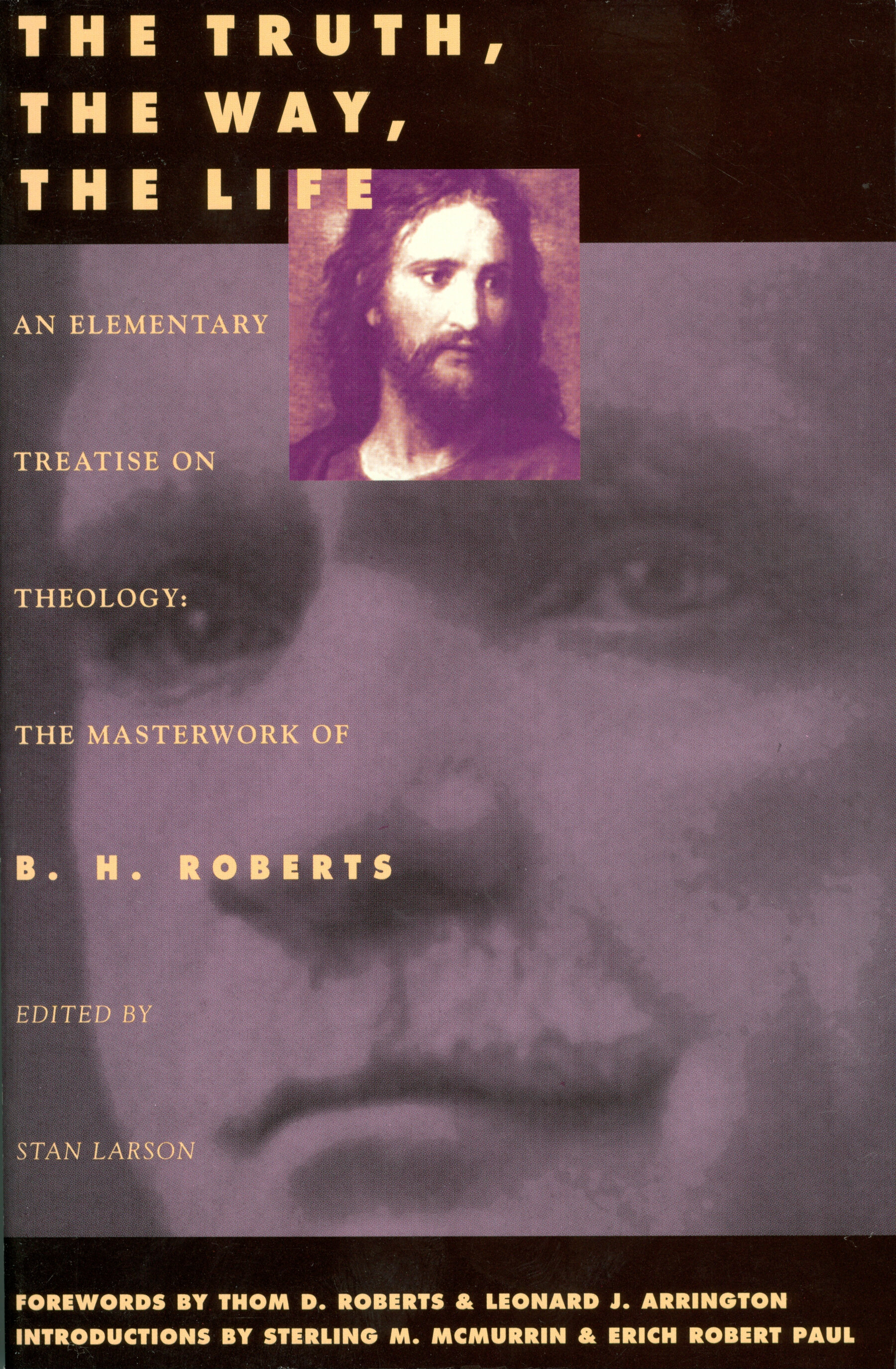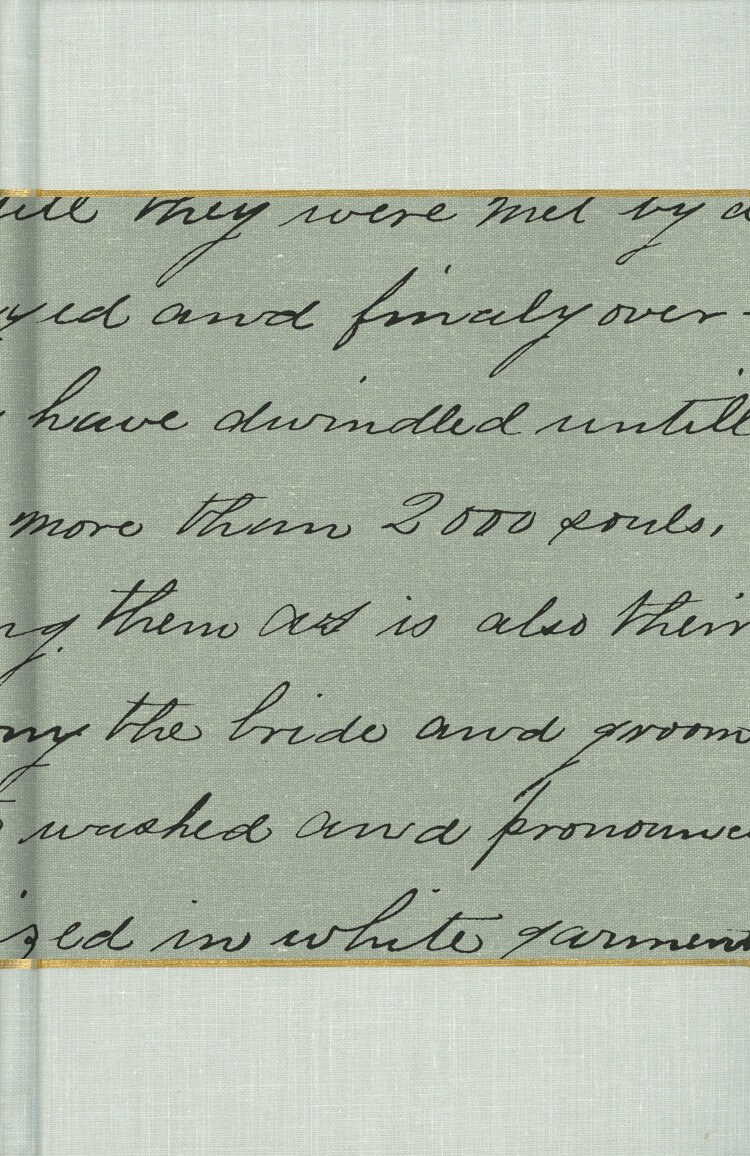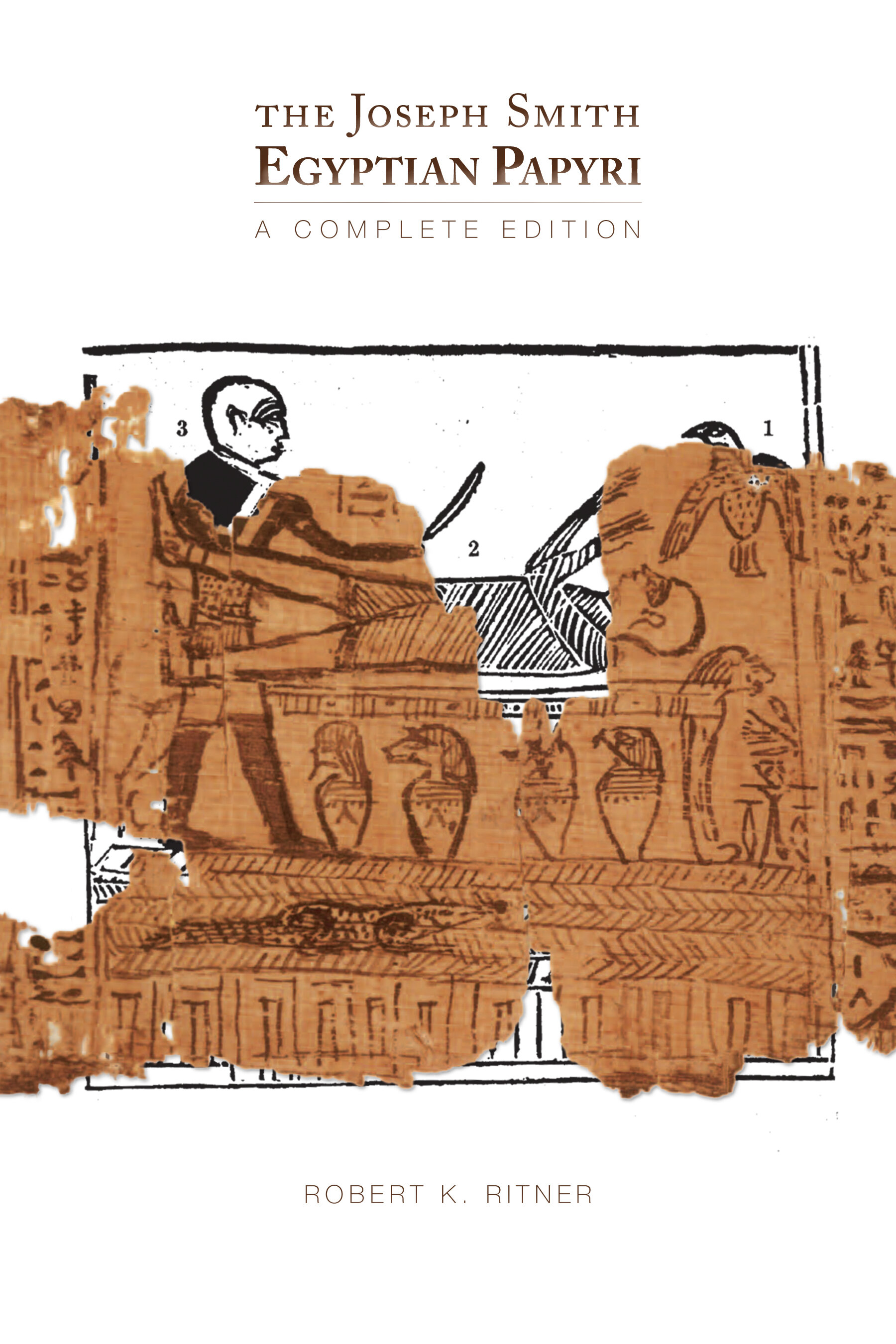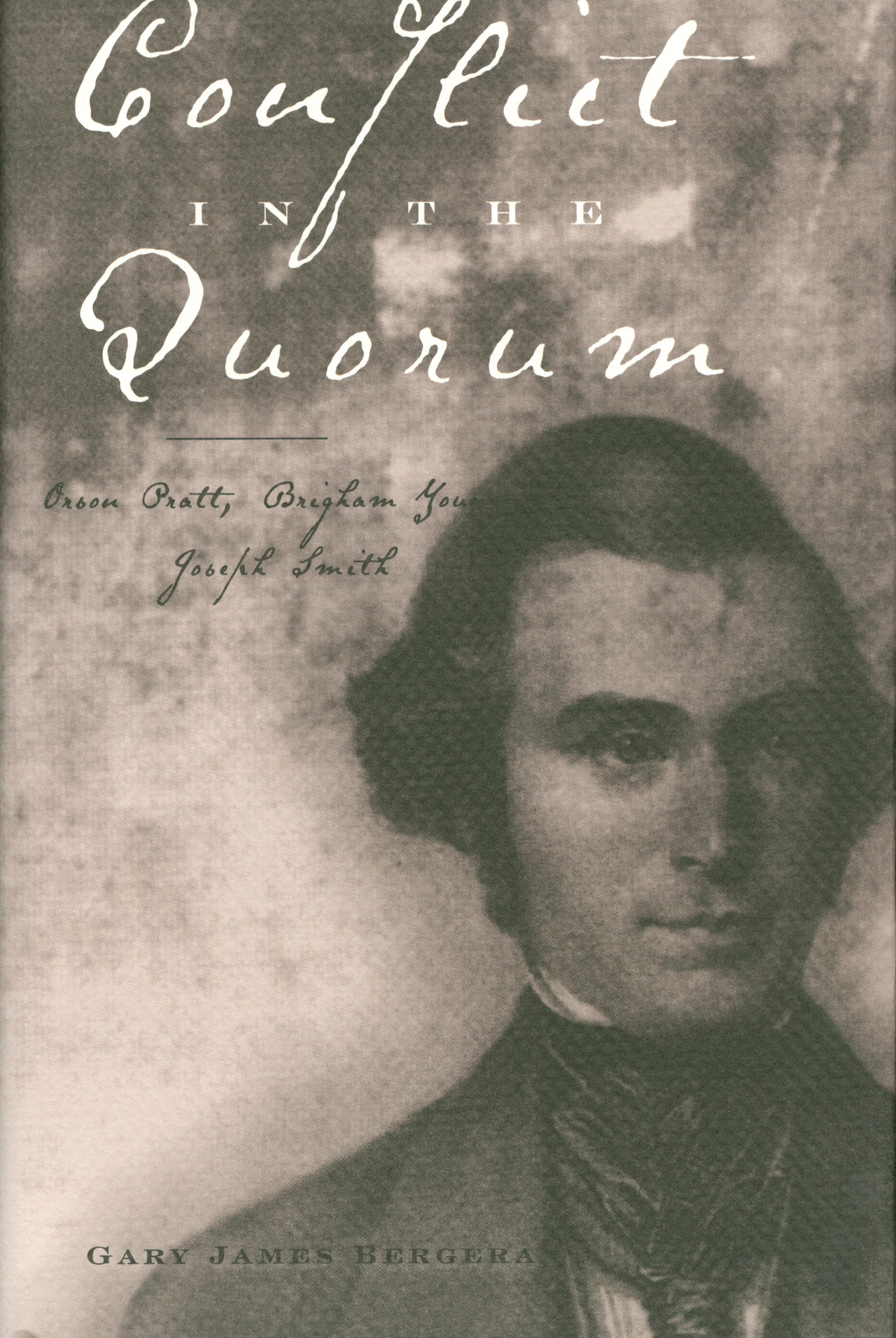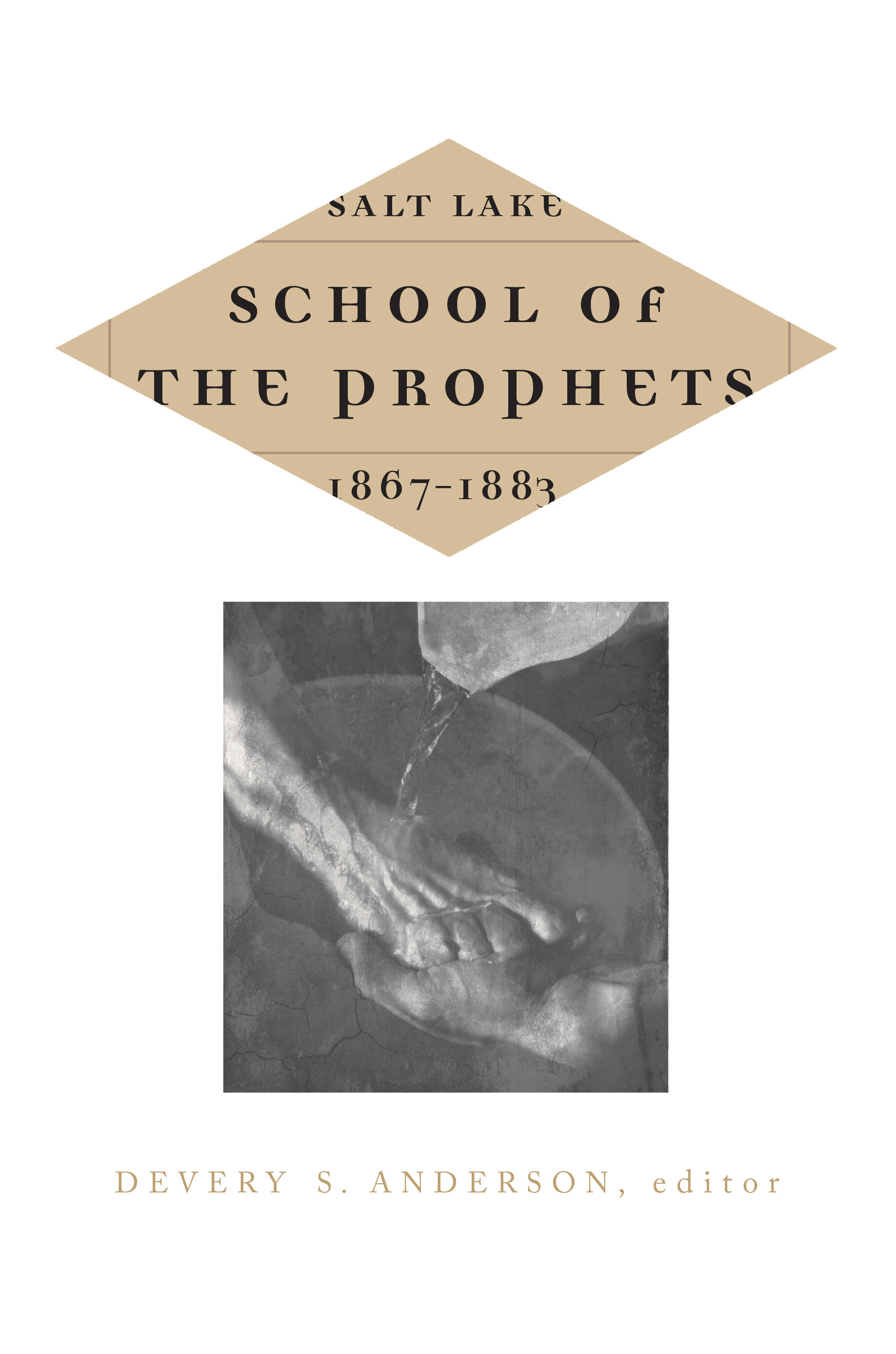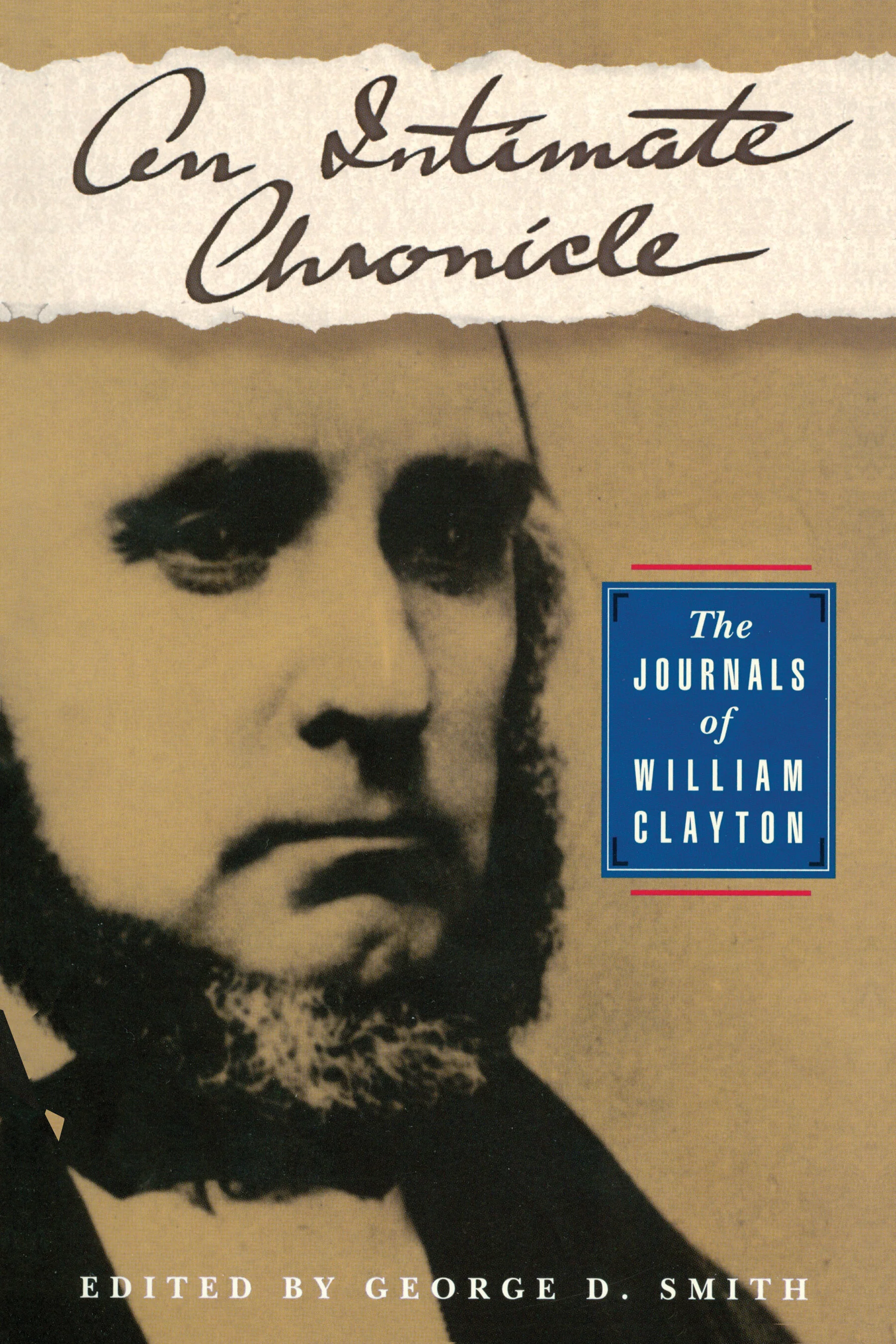 Image 1 of
Image 1 of


An Intimate Chronicle
An Intimate Chronicle: The Journals of William Clayton
edited by George D. Smith
William Clayton is best remembered today for his hymns, especially “Come, Come Ye Saints.” But as one of the earliest Latter-day Saint scribes, he made intellectual as well as artistic contributions to his church, and his records have been silently incorporated into official Mormon scripture and history. Of equal significance are his personal impressions of day-to-day activities, which describe a social and religious world largely unfamiliar to modern readers.
In ministering to the sick, for instance, Clayton anointed with perfumed oil and rum. He performed baptisms to heal the sick. Church services, held irregularly, were referred to as “going to meeting” and was elective. He testifies of people speaking in tongues and of others “almost speaking in tongues.” When introduced to plural marriage, he was reluctant but eventually became one of its most enthusiastic proponents, marrying ten women and fathering forty-two children.
Since polygamy was initially secret, Clayton spent much of his time putting out the fires of innuendo and discontent. He caught his first plural wife rendezvousing with her former fiancé; later, when she became pregnant, her mother—Clayton’s unaware mother-in-law—was so overwrought that she attempted suicide. Joseph Smith reassured him: “Just keep her at home and brook it and if they raise trouble about it and bring you before me I will give you an awful scourging and probably cut you off from the church and then I will set you ahead as good as ever.” Clayton was also the object of Emma Smith’s attentions, allegedly part of a jealous wife’s plan to make a cuckold of her errant husband.
paperback: $24.95 | ebook: $9.99
An Intimate Chronicle: The Journals of William Clayton
edited by George D. Smith
William Clayton is best remembered today for his hymns, especially “Come, Come Ye Saints.” But as one of the earliest Latter-day Saint scribes, he made intellectual as well as artistic contributions to his church, and his records have been silently incorporated into official Mormon scripture and history. Of equal significance are his personal impressions of day-to-day activities, which describe a social and religious world largely unfamiliar to modern readers.
In ministering to the sick, for instance, Clayton anointed with perfumed oil and rum. He performed baptisms to heal the sick. Church services, held irregularly, were referred to as “going to meeting” and was elective. He testifies of people speaking in tongues and of others “almost speaking in tongues.” When introduced to plural marriage, he was reluctant but eventually became one of its most enthusiastic proponents, marrying ten women and fathering forty-two children.
Since polygamy was initially secret, Clayton spent much of his time putting out the fires of innuendo and discontent. He caught his first plural wife rendezvousing with her former fiancé; later, when she became pregnant, her mother—Clayton’s unaware mother-in-law—was so overwrought that she attempted suicide. Joseph Smith reassured him: “Just keep her at home and brook it and if they raise trouble about it and bring you before me I will give you an awful scourging and probably cut you off from the church and then I will set you ahead as good as ever.” Clayton was also the object of Emma Smith’s attentions, allegedly part of a jealous wife’s plan to make a cuckold of her errant husband.
paperback: $24.95 | ebook: $9.99
An Intimate Chronicle: The Journals of William Clayton
edited by George D. Smith
William Clayton is best remembered today for his hymns, especially “Come, Come Ye Saints.” But as one of the earliest Latter-day Saint scribes, he made intellectual as well as artistic contributions to his church, and his records have been silently incorporated into official Mormon scripture and history. Of equal significance are his personal impressions of day-to-day activities, which describe a social and religious world largely unfamiliar to modern readers.
In ministering to the sick, for instance, Clayton anointed with perfumed oil and rum. He performed baptisms to heal the sick. Church services, held irregularly, were referred to as “going to meeting” and was elective. He testifies of people speaking in tongues and of others “almost speaking in tongues.” When introduced to plural marriage, he was reluctant but eventually became one of its most enthusiastic proponents, marrying ten women and fathering forty-two children.
Since polygamy was initially secret, Clayton spent much of his time putting out the fires of innuendo and discontent. He caught his first plural wife rendezvousing with her former fiancé; later, when she became pregnant, her mother—Clayton’s unaware mother-in-law—was so overwrought that she attempted suicide. Joseph Smith reassured him: “Just keep her at home and brook it and if they raise trouble about it and bring you before me I will give you an awful scourging and probably cut you off from the church and then I will set you ahead as good as ever.” Clayton was also the object of Emma Smith’s attentions, allegedly part of a jealous wife’s plan to make a cuckold of her errant husband.
paperback: $24.95 | ebook: $9.99
George D. Smith is a political science graduate of Stanford University, with an MBA from New York University. In 2016 he was awarded an honorary doctorate of humanities from the University of Utah. Throughout his career, Smith has served on the boards of several civic and philanthropic organizations, including the Commonwealth Club of California and National Public Radio. In addition to several articles on Mormon history, he is the author of the award-winning Nauvoo Polygamy, and edited An Intimate Chronicle: The Journals of William Clayton; and Religion, Feminism, and Freedom of Conscience. He is also the editor of Brigham Young, Colonizer of the American West: Diaries and Office Journals, 1832–1871. He established the Smith–Pettit Foundation and is president of Signature Books.
Documentary History, History
ISBN: 978-1-56085-022-9

